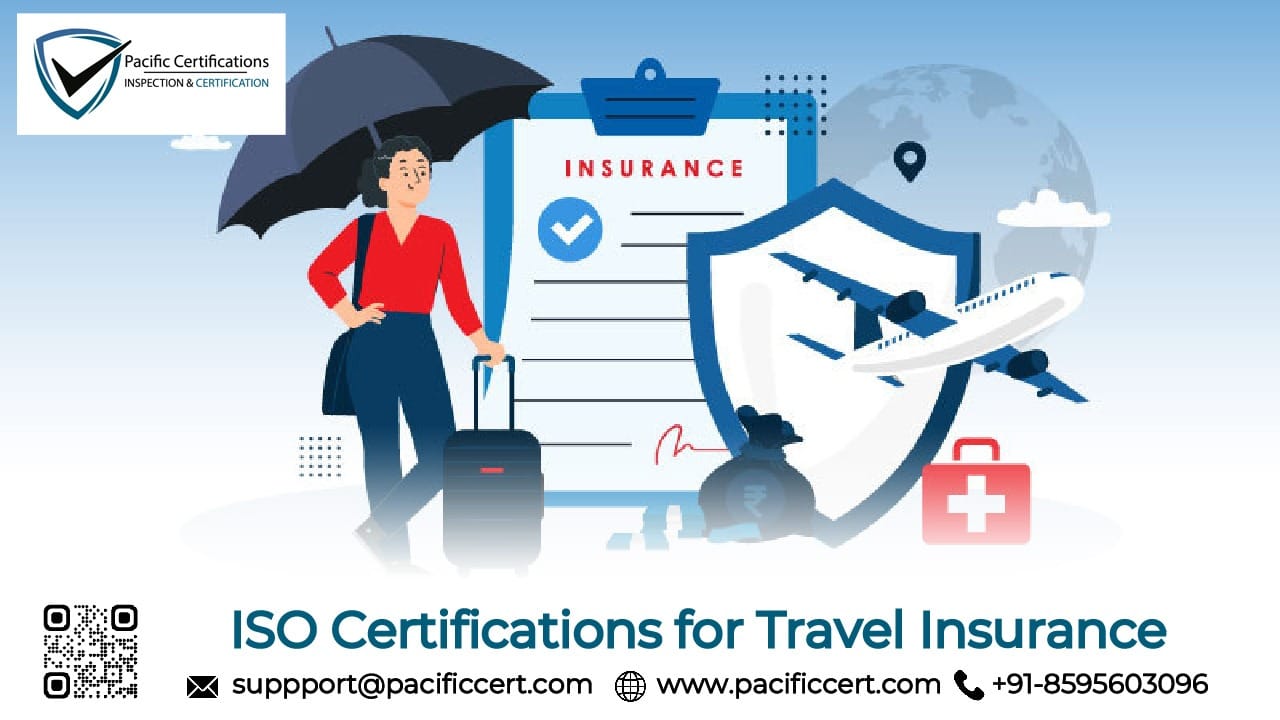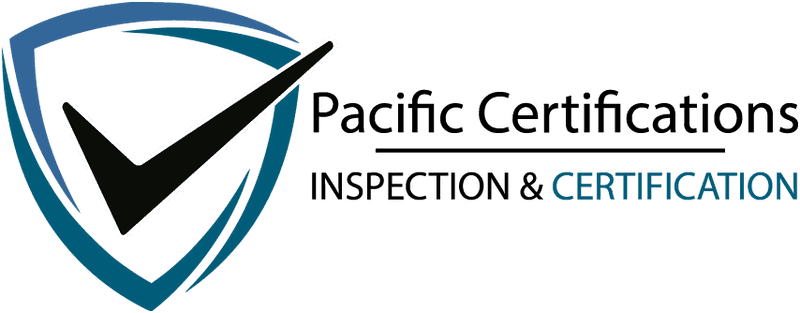ISO Certifications for Travel Insurance Businesses, Requirements and Benefits

Introduction
Travel insurance providers navigate complex operational environments encompassing policy underwriting, claims assessment, customer service coordination, fraud detection, and multi-channel distribution management. These businesses manage intricate processes including risk evaluation, premium calculation, medical claim validation, trip cancellation adjudication, emergency assistance coordination, and digital platform integration across diverse geographic markets and customer segments. The sector confronts distinctive challenges including extensive customer interaction demands consuming staff time, complex documentation review from international sources, lengthy approval processes delaying claim resolution, inadequate information from distressed travelers, and data security vulnerabilities exposing sensitive policyholder information to breach risks.
ISO certifications provide systematic frameworks that strengthen operational consistency, data protection, claims processing efficiency, and customer satisfaction across international markets. As digital transformation accelerates and regulatory scrutiny intensifies globally, travel insurers face mounting pressure to demonstrate adherence to international quality standards, information security protocols, business continuity capabilities, and customer complaint management systems. Certification enables organizations to systematically address operational vulnerabilities, reduce regulatory exposure, and build trust with policyholders, distribution partners, and regulatory authorities through evidence-based management systems supporting sustainable growth in competitive insurance markets demanding transparent service delivery and robust data protection.
"Excellence in travel insurance demands operational precision, unwavering data security, and customer-centric responsiveness throughout every policyholder interaction."
Quick Summary
ISO certifications provide travel insurance businesses with internationally recognized frameworks to manage quality through ISO 9001, information security through ISO 27001, business continuity through ISO 22301, customer complaints through ISO 10002, risk management through ISO 31000, and environmental responsibility through ISO 14001. These standards address critical operational risks including claims processing delays, data breaches exposing policyholder information, system downtime disrupting operations, customer complaint escalation, and fraud vulnerabilities, enabling insurers to deliver consistent, secure, responsive services meeting evolving international regulatory expectations and building policyholder confidence in organizational capability.
For more information on how we can assist your travel insurance business with ISO certifications, contact us at [email protected].
Applicable ISO Standards for Travel Insurance Businesses
Below are the most relevant ISO standards applicable to travel insurance providers, digital insurance platforms, insurance underwriters, and claims processing organizations:
ISO 9001:2015 – Quality Management System (QMS)
ISO 9001 provides travel insurance businesses with systematic frameworks for operational consistency, ensuring underwriting processes, claims assessment protocols, and customer service delivery align with quality objectives while maintaining policyholder satisfaction through documented procedures, performance monitoring, and continuous improvement mechanisms. This standard helps organizations streamline claims workflows, standardize risk evaluation criteria, and demonstrate accountability to regulatory authorities and distribution partners.
ISO 27001:2022 – Information Security Management System (ISMS)
Travel insurers manage extraordinarily sensitive personal information including medical histories, passport details, financial data, travel itineraries, and claim documentation requiring rigorous protection against cyberattacks and unauthorized access. ISO 27001 establishes systematic controls for data encryption, role-based access restrictions, breach prevention protocols, and privacy compliance safeguarding policyholder information while ensuring alignment with international data protection regulations governing insurance operations.
ISO 22301:2019 – Business Continuity Management System (BCMS)
Policyholders depend on uninterrupted access to emergency assistance, claims processing, and customer support where even brief system disruptions could leave travelers stranded without coverage during medical emergencies or travel disruptions. ISO 22301 enables insurers to develop continuity strategies addressing technology failures, cyberattacks, natural disasters, and operational disruptions, ensuring rapid recovery and maintenance of essential services protecting vulnerable travelers during adverse conditions.
ISO 31000:2018 – Risk Management Framework
Travel insurance businesses face multifaceted risks encompassing underwriting accuracy, claims fraud, catastrophic event exposure, operational failures, and regulatory non-compliance requiring systematic identification and mitigation frameworks. ISO 31000 provides structured risk management methodologies enabling organizations to evaluate underwriting vulnerabilities, assess fraud patterns, analyze operational hazards, and address strategic threats through evidence-based decision-making strengthening organizational resilience and stakeholder confidence.
ISO 10002:2018 – Customer Satisfaction & Complaints Handling
Travel insurance involves complex claim scenarios and frequent customer interactions where complaint management directly impacts satisfaction, retention, and regulatory compliance. ISO 10002 provides guidelines for establishing effective complaints-handling processes including accessibility, responsiveness, objectivity, transparency, and continuous improvement, enabling insurers to systematically address policyholder grievances and convert complaints into service improvement opportunities.
ISO 14001:2015 – Environmental Management System (EMS)
Travel insurers increasingly face expectations to demonstrate environmental responsibility through sustainable operational practices, digital transformation reducing paper consumption, and support for sustainable tourism initiatives. ISO 14001 establishes frameworks for environmental management including resource efficiency, waste reduction, carbon footprint monitoring, and sustainable procurement supporting corporate responsibility commitments and alignment with growing consumer preferences for environmentally conscious service providers.
Click here to find out more applicable standards to your industry
What are the Requirements of ISO Certifications for Travel Insurance Businesses?
Travel insurance providers seeking ISO certification must establish and maintain documented policies, procedures, and records aligned with the selected ISO standards. Key requirements include the following:
ISO 9001:2015 – Quality Management Systems
Define quality objectives for claims processing times, customer satisfaction scores, and policy accuracy with measurable performance indicators
Control service delivery processes including underwriting evaluation, premium calculation, claims assessment, and customer communication with documented procedures
Manage nonconformities through root cause analysis addressing claim processing errors, policy misrepresentations, or service failures with corrective actions
Implement performance monitoring systems tracking claims approval rates, processing cycle times, customer complaint frequencies, and satisfaction metrics
Conduct regular management reviews assessing quality system effectiveness, operational performance trends, and continuous improvement opportunities quarterly
Maintain comprehensive documentation covering underwriting guidelines, claims procedures, customer service protocols, and quality control test results
ISO/IEC 27001:2022 – Information Security Management Systems
Identify information assets including policyholder databases, medical records, payment information, travel documents, and proprietary underwriting algorithms
Implement role-based access controls restricting sensitive data availability to authorized personnel with documented access permissions and monitoring
Establish data protection procedures covering encryption protocols, secure transmission methods, cloud security standards, and backup recovery systems
Manage information security incidents through documented breach response protocols, policyholder notification procedures, and regulatory reporting requirements
Conduct regular security assessments evaluating vulnerabilities in policy management systems, claims platforms, and third-party vendor integrations
Maintain compliance documentation demonstrating alignment with data protection regulations including GDPR and international privacy frameworks
ISO 22301:2019 – Business Continuity Management Systems
Identify critical services requiring continuity including emergency assistance, claims processing, policy issuance, and customer support functions
Develop business impact analyses documenting recovery time objectives for essential operations supporting travelers during emergencies
Establish continuity plans addressing technology failures, cyberattacks, natural disasters, staffing shortages, and operational disruptions
Implement backup procedures for policyholder records, claims systems, payment processing platforms, and emergency contact capabilities
Conduct regular testing exercises validating continuity plan effectiveness through system failover drills and emergency scenario simulations
Document recovery strategies including alternate processing centers, cloud backup systems, and third-party service agreements
ISO 10002:2018 – Quality Management Customer Satisfaction
Establish accessible complaint channels enabling policyholders to submit grievances through multiple communication methods with documented procedures
Implement complaint tracking systems capturing complaint details, response timelines, resolution actions, and outcome documentation
Define complaint resolution procedures including acknowledgment timeframes, investigation protocols, and escalation pathways with documented standards
Monitor complaint handling performance tracking resolution times, complaint categories, root causes, and customer satisfaction with outcomes
Conduct regular complaint analysis identifying systemic issues, service improvement opportunities, and training needs from complaint patterns
Maintain transparency through communication protocols informing complainants of process steps, expected timelines, and resolution outcomes
ISO 31000:2018 – Risk Management
Establish risk governance structures defining risk management roles, responsibilities, and accountability throughout organizational hierarchy
Implement risk identification processes capturing underwriting risks, operational hazards, fraud patterns, regulatory compliance exposures, and strategic threats
Conduct risk assessments evaluating likelihood and impact of identified risks using standardized methodologies and documentation
Develop risk treatment plans addressing high-priority risks through mitigation strategies, control implementation, and monitoring procedures
Monitor risk management effectiveness tracking key risk indicators, control performance, and emerging risk trends with regular reporting
Maintain risk registers documenting identified risks, assessment results, treatment actions, and ownership assignments across business units
Tip: Prioritize comprehensive gap assessments comparing current underwriting processes, claims handling procedures, and data security controls against ISO requirements, focusing first on policyholder data protection vulnerabilities, claims processing inefficiencies, and business continuity inadequacies that pose immediate threats to operational integrity and regulatory compliance.
For more information on how we can assist your travel insurance business with ISO certifications, contact us at [email protected].
What are the Benefits of ISO Certifications for Travel Insurance Businesses?
ISO certifications deliver substantial operational and commercial advantages to travel insurers, strengthening service quality, customer trust, and competitive positioning; listed below are the key benefits for travel insurance providers, digital insurance platforms, insurance underwriters, and claims processing organizations:
Enhanced data security and breach prevention through systematic information security controls protecting sensitive policyholder information from cyberattacks and unauthorized access reducing regulatory exposure
Improved claims processing efficiency with standardized workflows, documented procedures, and quality controls reducing processing times, errors, and customer dissatisfaction
Strengthened customer satisfaction and retention as effective complaint management systems address grievances systematically building policyholder trust and loyalty
Greater operational resilience and business continuity with documented recovery strategies maintaining essential services during technology failures, disasters, or operational disruptions
Better regulatory compliance positioning as certification frameworks align with international insurance regulations, data protection requirements, and consumer protection standards
Reduced fraud risks and financial losses through systematic risk management frameworks identifying suspicious claim patterns and implementing prevention controls
Higher competitive differentiation and market credibility as certification demonstrates commitment to quality standards and operational excellence to distribution partners and policyholders
Streamlined audit and compliance processes through integrated documentation systems demonstrating compliance to multiple regulatory authorities across jurisdictions simultaneously
Improved vendor and partnership qualification as certified insurers meet quality requirements for distribution agreements with travel agencies, airlines, and booking platforms
Enhanced employee engagement and operational clarity as documented procedures, training frameworks, and quality standards provide clear operational guidance reducing errors
The global travel insurance market demonstrates exceptional expansion, valued at USD 30.08 billion in 2026 and projected to reach USD 62.53 billion in just a few years at a compound annual growth rate of 15.76%, driven by rising international tourism, increasing travel risk awareness following pandemic disruptions, expanding digital distribution platforms, and regulatory mandates for coverage in visa applications. Europe maintains market leadership with 41.87% share while Asia-Pacific emerges as the fastest-growing region at 19.37% CAGR through the coming years reflecting rising middle-class travel, digitalization, and regulatory evolution supporting insurance adoption.
ISO adoption in travel insurance accelerates as organizations pursue competitive differentiation and regulatory compliance advantages, with certified providers demonstrating enhanced operational efficiency, reduced data breach incidents, and strengthened customer confidence through systematic quality management addressing sector-specific vulnerabilities. Industry drivers including heightened cybersecurity requirements for policyholder data protection, business continuity expectations following technology outages, evolving fraud prevention demands, and customer experience differentiation pressures collectively position ISO certification as strategic infrastructure for insurers pursuing sustainable growth, operational excellence, and stakeholder trust in rapidly digitalizing insurance markets requiring transparent service delivery, robust data protection, and responsive customer support capabilities meeting international regulatory standards.
How Pacific Certifications Can Help
Pacific Certifications, accredited by ABIS, acts as an independent certification body for travel insurance businesses by conducting impartial audits against applicable ISO standards. Our role is to objectively assess whether documented management systems and insurance operations conform to international ISO requirements, based strictly on verifiable evidence and operational records.
We support travel insurance providers through:
Independent certification audits conducted in accordance with ISO/IEC 17021 standards
Practical assessment of real underwriting operations, claims processing procedures, data security controls, and customer service protocols
Clear audit reporting reflecting conformity status and certification decisions based on documented evidence
Internationally recognized ISO certification upon successful compliance demonstration
Surveillance and recertification audits to maintain certification validity throughout three-year cycles
Expert guidance on integrating multiple ISO standards for comprehensive management system frameworks addressing insurance sector complexities
If you need support with ISO certification for your travel insurance business, contact us at [email protected] or +91-8595603096.
Author: Ashish
Ready to get ISO certified?
Contact Pacific Certifications to begin your certification journey today!
Suggested Certifications –
Read more: Pacific Blogs

